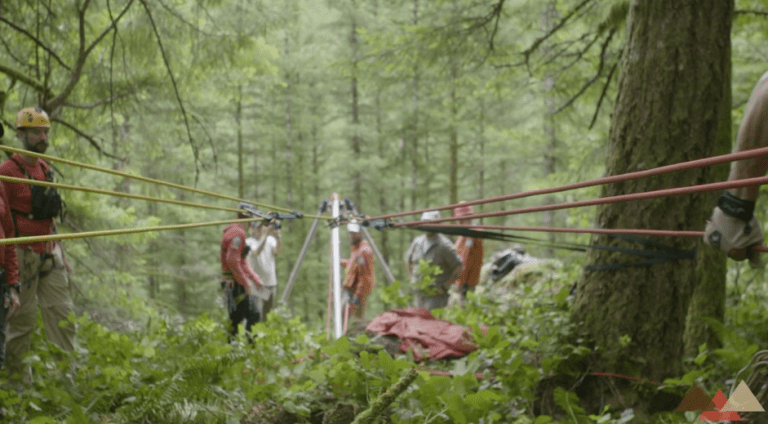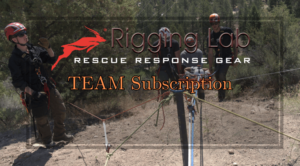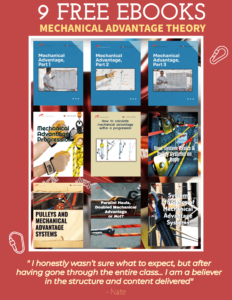Two-Tension Rope Systems: The Time Has Come
Rescue operations are as much about innovation as they are about precision. For decades, single-tension rope systems have been the backbone of technical rescue. They’ve worked reliably but come with inherent limitations: uneven load distribution, inefficiencies during edge transitions, and challenges with adaptability. Enter the Two-Tension Rope System (TTRS)—a game-changing advancement that balances safety, efficiency, and control in rescue scenarios.
The time for TTRS is now. This system, built around evenly distributing tension between two ropes, brings a new level of reliability to rescue teams, solving problems that traditional setups couldn’t fully address. But what makes TTRS so revolutionary, and how can you implement it effectively? Let’s explore.
Why Two-Tension Rope Systems Are Transformational
Imagine you’re in the middle of a high-angle rescue, lowering a loaded litter down a cliffside. In a traditional setup, a single main line carries the weight, while the belay line serves as a backup. The problem? The belay line rarely engages, leaving most of the system’s redundancy untested. TTRS changes the game by putting both ropes to work, sharing the load equally.
This shared tension creates a system where redundancy isn’t just a backup—it’s active and integral to the operation. With TTRS, if one line fails, the other seamlessly takes over without shock-loading the system or jeopardizing the rescue. For teams operating in unpredictable or high-risk environments, this level of reliability is invaluable.
(A Two Rope Offset using Two Tension Systems on both near and far sides.)
What Sets TTRS Apart?
Balanced Load Control
At its core, TTRS distributes weight evenly between two ropes, reducing the strain on any single component. This balanced control minimizes rope stretch, enhances precision, and extends the life of your gear.
Smoother Edge Transitions
Anyone who’s faced the dreaded edge transition knows how difficult it can be to navigate. TTRS simplifies this process. By maintaining equal tension across both ropes, the system reduces drag and allows the load to move more fluidly over edges, minimizing wear on ropes and hardware.
Consider the difference this makes when working in urban environments or rugged terrain. No more abrupt shifts or compromised angles—just smooth, controlled movement.
Practical Applications for TTRS
The versatility of Two-Tension Rope Systems makes them ideal for a wide range of scenarios:
- High-Angle Rescues: Navigate cliffs and steep slopes with improved stability and control.
- Urban Operations: Handle sharp edges and confined spaces without compromising safety.
- Confined Space Entry: Maintain consistent load balance when operating in tight or enclosed areas.
For edge-specific techniques, check out Edge Management Techniques in High-Angle Rescue.
How to Get Started with TTRS
Transitioning to TTRS doesn’t have to be daunting. Start by ensuring your team understands the system’s components and principles.
1. Equipment Selection
Invest in progress-capture devices that can handle tensioned ropes, such as CMC MPDs or Petzl I’Ds. Pair these with static kernmantle ropes to ensure minimal stretch and optimal control.
2. Training and Familiarization
Like any advanced system, TTRS requires practice. Simulate scenarios where load balancing is critical, such as high-angle raises or edge transitions. Training sessions should focus on synchronizing rope operators to maintain even tension throughout the operation.
3. Implementing in the Field
Start small, incorporating TTRS into low-stakes operations before using it in critical rescues. This allows the team to refine their skills and troubleshoot any challenges in real-world conditions.
For additional guidance on mechanical advantage systems, see Go 0 to 60 in Your Understanding of Mechanical Advantage.
Overcoming Challenges
It’s important to acknowledge that adopting TTRS comes with its own set of hurdles. Teams accustomed to single-tension systems may face a learning curve, and the increased gear requirements can pose logistical challenges. However, with proper training and a focus on communication, these obstacles are easily surmountable.
The Future of Rescue Systems
As rescue teams strive to meet the demands of increasingly complex scenarios, the advantages of Two-Tension Rope Systems become undeniable. TTRS not only enhances safety but also redefines what’s possible in technical rescue. It’s more than a system—it’s a mindset shift toward precision, adaptability, and control.
The time for TTRS isn’t just coming—it’s here. Don’t wait to incorporate this groundbreaking approach into your training and operations.
Peace on your Days
Lance










13 thoughts on “Two-Tension Rope Systems”
I love it when people come together and share opinions, great blog, keep it up.
This is a topic close to my heart cheers, where are your contact details though?
Those are yours alright! . We at least need to get these people stealing images to start blogging! They probably just did a image search and grabbed them. They look good though!
454644 478669Nice read, I just passed this onto a colleague who was doing a little research on that. And he just bought me lunch as I found it for him smile So let me rephrase that: Thank you for lunch! 929495
695059 357045dress shops that offer discounts are quite common in our spot and i always shop at them,. 810279
Thanks for your posting. One other thing is individual states in the United states of america have their own laws of which affect house owners, which makes it very hard for the the nation’s lawmakers to come up with a whole new set of rules concerning foreclosed on homeowners. The problem is that each state features own regulations which may have impact in an undesirable manner in terms of foreclosure policies.
Hey there! I know this is somewhat off topic but I was wondering which blog platform are you using for this website? I’m getting tired of WordPress because I’ve had issues with hackers and I’m looking at alternatives for another platform. I would be great if you could point me in the direction of a good platform.
490302 994875Interested in start up a online business on line denotes revealing your service also providers not only to humans within your town, nevertheless , to numerous future prospects which are cyberspace on numerous occasions. pays day-to-day 847139
545599 962026really nice post, i undoubtedly adore this wonderful web site, carry on it 174663
This is one awesome article post. Much obliged.
767517 957279Hi there! Fantastic stuff, please do tell me when you lastly post something like that! 471543
Thanks a bunch for sharing this with all of us you actually recognize what you are speaking approximately! Bookmarked. Kindly also discuss with my web site =). We will have a hyperlink exchange agreement between us!
I truly appreciate this post. I¦ve been looking all over for this! Thank goodness I found it on Bing. You have made my day! Thx again
Comments are closed.